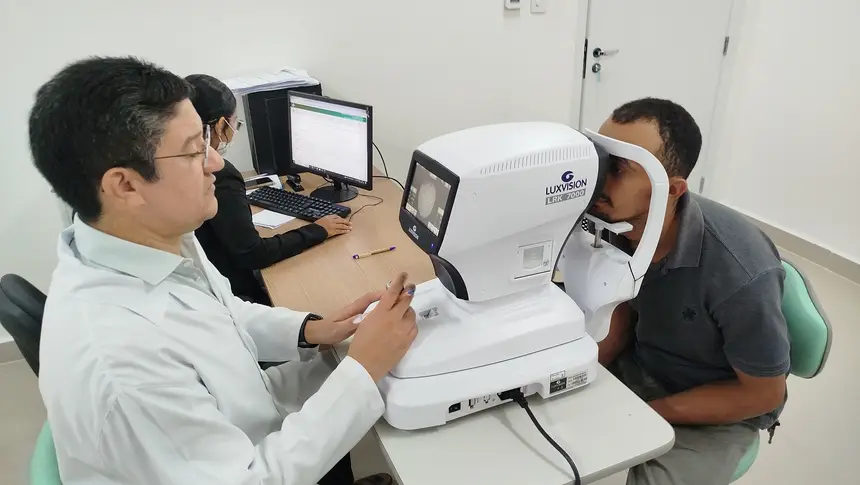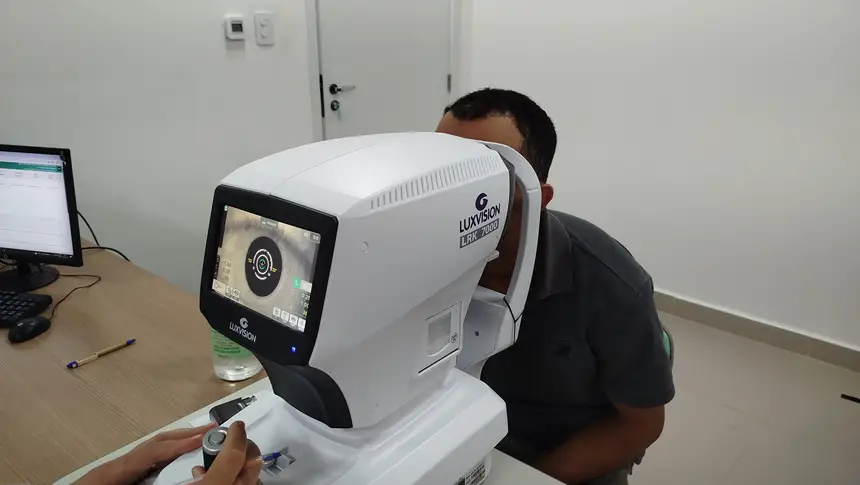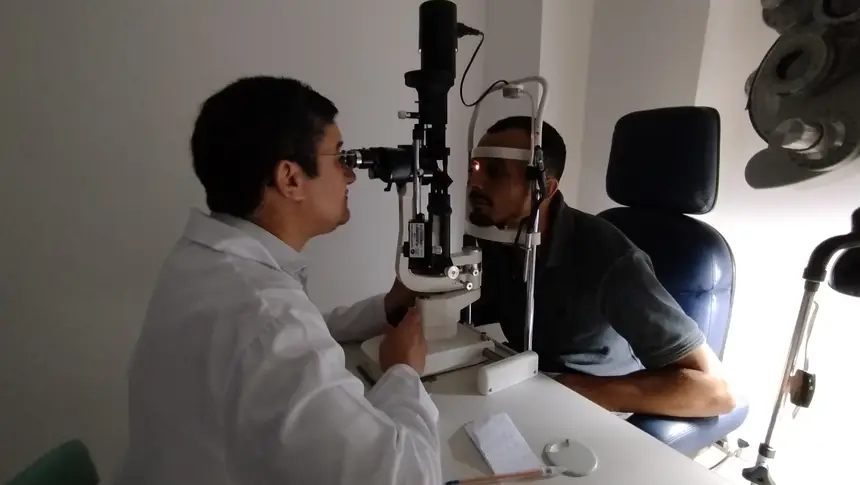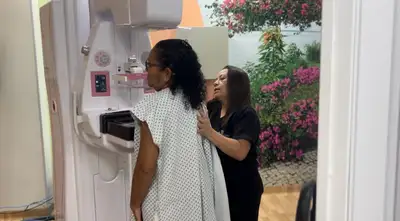In Marabá, Policlínica Carajás advises on the prevention and care of eye health
Ophthalmologist Marcos Milhomem explains the warning signs, highlights the importance of early diagnosis, and suggests healthy habits
The Policlínica Carajás Miguel Chamon, in Marabá, reinforces the importance of prevention and care for eye health, with a special focus on cataracts, a disease that leads the causes of blindness worldwide, accounting for 51% of cases, equivalent to about 20 million people, according to data from the World Health Organization (WHO).
Marcos Milhomem, an ophthalmologist who is part of the Policlínica team, explains that cataracts are characterized by the clouding of the lens, a small natural lens located in the eyes that is responsible for focusing vision, allowing images to be seen clearly.
"When this lens begins to become cloudy, the patient notices symptoms such as blurred vision, difficulty seeing at night or in low-light environments, sensitivity to light and glare, colors that begin to appear more faded or yellowed, perception of halos around lights, and in some cases, double vision. These signs appear progressively, and often, people take time to realize the severity of the situation," warns the specialist.
According to the ophthalmologist, the prevention of cataracts begins with regular visits to the ophthalmologist, especially from the age of 50 or earlier if there are risk factors. "Professional monitoring allows for early diagnosis and enables the indication of the most appropriate time for surgical treatment, the only one capable of reversing the loss of visual quality caused by the disease," explains the doctor.
Causes and Treatment
Although natural aging is the main cause of cataracts, the specialist draws attention to factors that can contribute to the early onset of the disease. "Eye trauma, prolonged use of corticosteroid medications, family history, excessive sun exposure without protection, and diseases such as diabetes increase the risk of cataracts," emphasizes Marcos.
In addition, the ophthalmologist reinforces that maintaining healthy habits, such as a balanced diet and controlling chronic diseases, is an effective way to protect vision and slow the progression of the problem. "Having a diet rich in vitamins and antioxidants, engaging in physical activities, controlling diabetes, and wearing UV-protective glasses when exposed to the sun are measures that help preserve vision for longer," advises the professional.
The ophthalmologist also explained that the only effective treatment for cataracts is surgery, indicated when the disease begins to compromise the patient's quality of life. The procedure is safe, quick, and performed with local anesthesia, without the need for hospitalization.
"The surgery removes the cloudy lens and implants an intraocular lens, which restores the clarity of vision. The postoperative period is usually smooth but requires care, such as avoiding physical exertion and correctly using the prescribed eye drops to prevent infections," advises the specialist.
Reference
The Policlínica Carajás, managed by the Institute of Social and Environmental Health of the Amazon (ISSAA), in partnership with the State Department of Public Health (Sespa), has a specialized ophthalmology service. Since the inauguration of the unit in April of this year until June, more than 500 consultations and exams have been conducted, contributing to the prevention, early diagnosis, and proper guidance of patients with eye diseases, such as cataracts.
Services at the unit are regulated by the State Regulation Center, linked to Sespa. To access the services, citizens must seek a Basic Health Unit (UBS), obtain a referral, and present it at the Municipal Health Department of their city, which will register and schedule an appointment with the Policlínica.
Check out 5 extra tips to prevent the onset of cataracts:
•Avoid self-medication for eyes: Eye drops without prescription can mask symptoms and worsen eye problems;
•Reduce exposure to blue light: The light emitted by cell phones, computers, and TVs, in excess and without protection, contributes to the premature aging of the lens. Use blue light filters or set screens to night mode to protect vision;
•Prefer environments with good humidity: Dry eyes constantly exposed to air conditioning or fans can suffer daily micro-aggressions. Natural eye lubrication preserves the health of the lens in the long term;
•Prioritize complete eye exams: Exams that evaluate the fundus, intraocular pressure, and lens quality are essential for early identification of changes related to the onset of cataracts;
•Wear protective glasses in dusty or chemical environments: Fine dust, smoke, and toxic products increase the chance of irritations and micro-injuries to the eyes, which favor changes in the lens over time.














